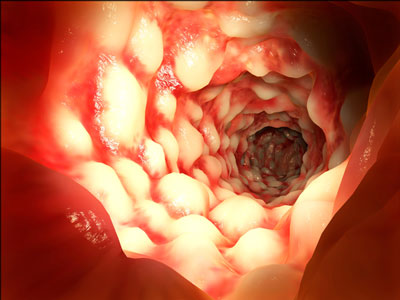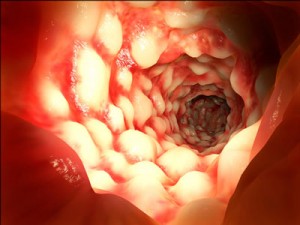Phase II data for GED-0301 in patients with active Crohn’s disease presented at Digestive Disease Week
Posted: 19 May 2015 |
A post-hoc subgroup analysis of a Phase II trial of Celgene’s GED-0301 in patients with active Crohn’s disease was presented at Digestive Disease Week…


A post-hoc subgroup analysis of a double-blind, placebo-controlled, randomised, multicentre phase II trial of Celgene’s GED-0301 (mongersen) in patients with active Crohn’s disease was presented at Digestive Disease Week (DDW).


“For patients with Crohn’s, disease severity and duration can influence the therapeutic effect of certain medicines,” said Professor Giovanni Monteleone, University of Rome Tor Vergata. “This subgroup analysis of data from the phase II study explored the effects of these factors on clinical response and clinical remission rates with GED-0301 — being investigated as an orally administered antisense therapy with a novel mechanism of action designed to act locally.”
The primary findings of the phase II trial, which enrolled 166 adult patients with active Crohn’s disease , were published in the 19 March 2015 issue of The New England Journal of Medicine. Patients in the trial were treated for two weeks with either placebo or one of three doses of GED-0301 (10 mg, 40 mg or 160 mg tablets, once daily) and then followed for an additional 10 weeks. The presentation at DDW retrospectively examined certain subgroups of patients in the trial.
In the subgroup analysis, patients were grouped by disease duration, baseline CDAI score and baseline levels of the C-reactive protein (CRP) inflammatory marker. Patients in these subgroups were then analysed for clinical remission and clinical response at weeks 2 and 4. Clinical remission rates for patients treated with GED-0301 160 mg were similar regardless of disease duration or baseline CDAI or CRP levels and were higher than those for patients on placebo. These findings provide a rationale for continued evaluation of the 160 mg dose in the phase III programme.
Patients with more severe Crohn’s disease or a longer duration of disease were able to achieve clinical response with GED-0301
For patients with a disease duration of at least five years, 62.5% of those treated with GED-0301 160 mg were in clinical remission at week 2, compared with 15.4% of those treated with placebo. Similar results were observed at week 4 (66.7% vs. 15.4% respectively). Clinical response rate was 70.8% with GED-0301 160 mg compared with 19.2% with placebo at week 2, and 79.2% versus 26.9% respectively at week 4.
For patients with baseline CDAI of at least 260, 62.5% of those treated with GED-0301 160 mg were in clinical remission at week 2 compared with 13.6% for placebo, and 75.0% versus 4.5% respectively at week 4. Clinical response rate was 87.5% with GED-0301 160 mg versus 22.7% for placebo at week 2, and 87.5% versus 22.7% respectively at week 4.
Similar results were observed for patients with baseline CRP of at least 3 mg/L (about 60% of patients in the trial). At week 2, 71.4% of patients in the GED-0301 160 mg group achieved clinical remission compared with 24.0% in the placebo group. At week 4, similar results were observed (75.0% vs. 12.0%). In the GED-0301 160 mg group, 60.7% and 64.3% had a clinical response at weeks 2 and 4 respectively, compared with 32.0% and 24.0% in the placebo group.
The most commonly reported adverse effects in the GED-0301 treatment groups were abdominal pain, Crohn’s disease worsening, urinary tract infection and CRP increase.
“The analysis presented at DDW suggests that patients with more severe Crohn’s disease or a longer duration of disease were able to achieve clinical response or clinical remission with the 160 mg dose of GED-0301,” said Scott Smith, President of Celgene Inflammation and Immunology. “Patients with moderate to severe Crohn’s disease are in need of new treatment options. Based on these findings, and as part of our commitment to bringing innovative medicines to this patient community, we look forward to continued study of this potentially transformative therapy in phase III trials.”




